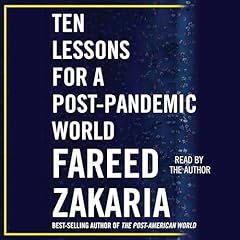
Losing the Long Game
The False Promise of Regime Change in the Middle East
No se pudo agregar al carrito
Solo puedes tener X títulos en el carrito para realizar el pago.
Add to Cart failed.
Por favor prueba de nuevo más tarde
Error al Agregar a Lista de Deseos.
Por favor prueba de nuevo más tarde
Error al eliminar de la lista de deseos.
Por favor prueba de nuevo más tarde
Error al añadir a tu biblioteca
Por favor intenta de nuevo
Error al seguir el podcast
Intenta nuevamente
Error al dejar de seguir el podcast
Intenta nuevamente
 Exclusivo para miembros Prime: ¿Nuevo en Audible? Obtén 2 audiolibros gratis con tu prueba.
Exclusivo para miembros Prime: ¿Nuevo en Audible? Obtén 2 audiolibros gratis con tu prueba.
Elige 1 audiolibro al mes de nuestra inigualable colección.
Acceso ilimitado a nuestro catálogo de más de 150,000 audiolibros y podcasts.
Accede a ofertas y descuentos exclusivos.
Premium Plus se renueva automáticamente por $14.95 al mes después de 30 días. Cancela en cualquier momento.
Compra ahora por $18.00
-
Narrado por:
-
Mark Deakins
-
De:
-
Philip H. Gordon
Since the end of World War II, the United States has set out to oust governments in the Middle East on an average of once per decade—in places as diverse as Iran, Iraq, Afghanistan (twice), Egypt, Libya, and Syria. The reasons for these interventions have also been extremely diverse, and the methods by which the United States pursued regime change have also been highly varied, ranging from diplomatic pressure alone to outright military invasion and occuapation. What is common to all the operations, however, is that they failed to achieve their ultimate goals, produced a range of unintended and even catastrophic consequences, carried heavy financial and human costs, and in many cases left the countries in question worse off than they were before.
Losing the Long Game is a thorough and riveting look at the U.S. experience with regime change over the past seventy years, and an insider’s view on U.S. policymaking in the region at the highest levels. It is the story of repeated U.S. interventions in the region that always started out with high hopes and often the best of intentions, but never turned out well. No future discussion of U.S. policy in the Middle East will be complete without taking into account the lessons of the past, especially at a time of intense domestic polarization and reckoning with America's standing in world.
Los oyentes también disfrutaron:




















Highly recommended
Se ha producido un error. Vuelve a intentarlo dentro de unos minutos.
Losing the long game in the Middle East
Se ha producido un error. Vuelve a intentarlo dentro de unos minutos.
No review possible
Se ha producido un error. Vuelve a intentarlo dentro de unos minutos.
Decent Book but Not Great
Se ha producido un error. Vuelve a intentarlo dentro de unos minutos.
There are initial conditions that can wildly influence the outcomes, and intermediate steps that disallow the intended steady state solution from being implemented, of course. Anyone who takes PDE knows this. I would have liked to see less of a historical review, or at least if that review was to measurable use, so we readers can know what has been learned more in-depth from our extensive trial-and-error attempts at regime change. A pragmatic data-driven approach to this discussion would have been more fruitful to me, personally. The predictions for such a model should reflect the failures seen in the middle east while also pointing to promise in other cases where we saw successful regime change. I think going into what an unstable equilibrium looks like (regime overthrow, then chaos) in comparison to whether slow and steady nudges of influence used to reach a non-ideal equilibrium, (that can slowly be shifted over decades, possibly, to a more ideal state) is feasible (why/why not) would be a useful discussion for newbies like me. Just as a general comment, I personally would have benefited more from this reading had alternative strategies been discussed more fully. Why and why not other ways of encouraging positive associations with the American outsiders are implemented (and why they should/shouldn’t be) (e.g., taking a genuine interest into the needs of the region and making steps to supplying whatever it is to fill those needs and/or supplying opportunities for residents to implement it themselves like what can be done a bit in Africa).
Good reflective analysis.
Se ha producido un error. Vuelve a intentarlo dentro de unos minutos.


